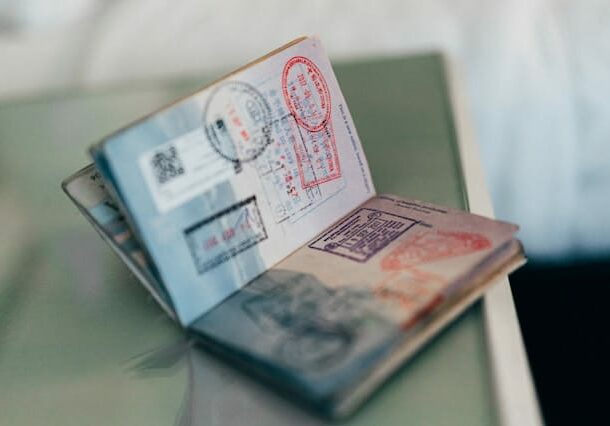Spanish citizenship is a legal status that provides you with the right to live in Spain indefinitely. Spanish citizens have the right to obtain a Spanish passport and live and work within the European Union.
In this guide you will learn about:
- The benefits of obtaining Spanish citizenship
- How to get Spanish citizenship
- The requirements for applying for Spanish citizenship and more
Top 9 Benefits of Spanish Citizenship

2. Diverse cultures: Spanish citizenship offers a unique opportunity to immerse yourself one of the most enticing European countries. The easiest way to fit in is to learn the Spanish language, either by learning it on your own at home or by interacting with Spanish citizens.
3. World-class education and healthcare: Spain is known for its high standards in education and healthcare. As a Spanish citizen, you benefit from access to its social benefits, including the public education system, renowned universities, subsidies, social assistance programs, and a healthcare system that is among the best in the world, ensuring a high quality of life.
4. Economic opportunities: With Spanish citizenship comes the opportunity to engage in Spain’s growing economy without the need for work permits. Spain offers a dynamic job market and a supportive environment for entrepreneurs and investors, making it an attractive destination for career growth and business development.
5. Learning Spanish: Becoming a Spanish citizen also means an opportunity to master the Spanish language, one of the most widely spoken languages in the world. This skill opens doors to personal and professional growth and allows for deeper connections with the Spanish-speaking world.
6. Family legacy: Spanish citizenship can be a precious legacy for future generations. It grants your children and future descendants the same rights and opportunities, ensuring they inherit the rich cultural heritage and the numerous benefits that come with being a citizen of Spain.
7. Dual citizenship: One of the remarkable benefits of Spanish citizenship is the potential for dual citizenship, depending on your country of origin’s laws. This allows you to maintain your original nationality while embracing a Spanish identity. It’s a chance to enjoy the best of both worlds, retaining cultural ties to your homeland while being fully integrated into Spanish society.
8. Enhanced legal rights: Spanish citizenship confers a full suite of legal rights, including voting in local and national elections. As a Spanish citizen, you have a voice in shaping the policies and future of the country. This also extends to EU elections, where you can help decide the trajectory of the European Union, giving you a significant role in the political landscape at both national and continental levels.
9. Spanish passport: After obtaining citizenship from Spain, you can then apply to get a Spanish passport. This is one of the strongest passports in the world, as there are over 180 Spanish passport visa-free countries.
How to Get Spain Citizenship
1. Spanish citizenship by birth

You get Spanish citizenship when one of the following conditions are met:
- You automatically receive Spanish citizenship if you’re born in Spain and one of your parents is a Spanish national
- You’re eligible for citizenship if you’re born abroad to a foreign parent born in Spain
- You’re eligible for citizenship if you’re born in Spain to stateless parents
2. Spanish citizenship by descent
Acquiring Spanish nationality is possible for those who can provide Spanish ancestry, as set out by decree Law 20/2022 of 19 October. To be eligible for Spanish citizenship by descent, you must have either Spanish parents or Spanish grandparents, and it doesn’t include citizenship by naturalization.
Similar to the UK’s Ancestry visa, Spanish citizenship can be passed down no more than two generations. But, there are specific criteria that must be met. Individuals who can apply for Spanish citizenship by descent are:
- Those born outside Spain to parents, grandfather or grandmother, who had originally been Spanish, and who, as a consequence of having suffered exile for political, ideological or belief reasons or sexual orientation and identity, would have lost or renounced Spanish nationality.
- The sons and daughters born abroad of Spanish women who lost their nationality by marrying foreigners before changes in the 1978 Constitution. (Spanish women who married to citizens of any country after August 5, 1954 do not lose Spanish nationality).
- The sons and daughters of legal age of those Spaniards whose nationality of origin was recognized by virtue of the right of option in accordance with the provisions of this law or in the seventh additional provision of Law 52/2007, of December 26.
3. Spanish citizenship by marriage

It starts with obtaining a residence permit through family reunification. Then, potential applicants must live in Spain for at least a year after that, before continuing the process.
It’s important to note that a foreign spouse can’t lose the right of residence in the event of the Spanish spouse’s death if they’ve already been living in Spain for at least a year. In the cases of divorce or annulment of marriage, there are specific circumstances in which the foreign spouse can’t lose the right to Spanish residency.
4. Spanish nationality by the possession of status
As the Spanish government explains, nationality by the possession of status (sometimes also referred to as “possession of state”) is a relatively unusual way of getting Spanish citizenship. Essentially, anyone who stays in the country for ten years under the sincere assumption of being a Spanish citizen (even if not legally) gets Spanish nationality.
It’s a complex situation, and few people have opted to go this route. According to the Spanish ministry, “The person concerned must have possessed and used Spanish nationality in good faith, and a record of nationality must be held in the Civil Register, even if that record is annulled.”
5. Spanish citizenship by discretionary conferral
In exceedingly rare cases, it is possible for the Spanish government to grant you Spanish citizenship. Understandably, the law states that “The person concerned must prove that there are exceptional circumstances warranting the granting of nationality.” Each application is on a case-by-case basis and is “not subject to the general rules of administrative procedure.”
Applicants usually excel in specific activities, such as culture, sport, science, or in solidarity with Spain.
6. Spanish citizenship by naturalization

The timeline for naturalization varies based on your country of citizenship and individual situation.
After two years of residency (Ibero-American countries): Citizens from certain countries are subject to receiving Spanish nationality after just two years of residency in the country. The enlisted countries include Ibero-American countries, Portugal, the Philippines, France, Andorra, and Equatorial Guinea.
After five years of residency (for refugees): Spain has a great approach toward refugees. As per the Spanish Nationality Law and Spanish constitution, any refugee can be directly eligible for Spain citizenship after five years.
Spanish Citizenship After Permanent Residency
If you live in Spain legally with a residence permit for more than ten years, you are likely to be eligible for Spanish citizenship by permanent residence. Additionally, you must prove that you are of good civic standing.
There is also a requirement to take (and pass) a test that determines your integration into Spanish society. As set out by the Instituto Cervantes, the Spanish government explains that this tests the applicant’s knowledge and fluency of the Spanish language and constitutional and sociocultural knowledge of Spain.
Note: Time spent on a tourist visa or student visa will not be considered substantial time spent in Spain with residency.
Spanish Citizenship by Investment

The government launched this program in 2013 to encourage foreign citizens to contribute to the country’s economy by requiring them to invest a minimum of €500,000. In exchange, they and their families can enjoy legal residency in Spain.
There are multiple sectors for this kind of investment, including real estate, deposits, bonds, and businesses. Your legal permanent residence through a Golden Visa in Spain will eventually help you in acquiring Spanish citizenship by investment.
Upon approval of your application, you will receive a one-year visa which you can renew every year or a three year residence permit. However, you can apply for Spanish citizenship after five years of residency.
You can find our detailed guide on the Spanish Golden Visa for non-EU citizens to make informed decisions on if this program is right for you.
Final and Mandatory Spanish Citizenship Requirements
There are three final requirements in addition to meeting the citizenship by option, residency, or discretionary conferral criteria. You must fulfill these to complete the process. These non-negotiable conditions are:
Swearing an oath or promise of allegiance to the King and obedience of the Spanish Constitution and laws. | |
Declaration renouncing previous nationality. This is not required of nationals of Latin American countries, Andorra, the Philippines, Equatorial Guinea, Portugal or Sephardic Jews of Spanish origin. | |
Entry of the acquisition of nationality in the Spanish Civil Register. |
Swearing an oath of allegiance to the King of Spain and the Spanish Constitution and laws
After an applicant is granted Spanish citizenship they must swear an oath of allegiance to the King of Spain and the Spanish Constitution and laws. This shows a profound allegiance to the country, making one a true Spanish national.
Entry of acquisition into the Spanish Civil Registrar
The Spanish Civil Register, as with most other countries, is a massive collection of births, deaths and marriages in Spain. The records note every civil action, and when you acquire citizenship, they will make an annotation.
The Civil Register Officer enters your details into the register in the margin of the main birth registration. Theoretically, when they grant you Spanish citizenship, they enter a birth registration and note the date and route of acquisition of Spanish nationality.
Declaration renouncing previous nationality
There is a unique benefit of citizenship for people belonging to any former Spanish colony in Ibero-American countries. These areas do not need to renounce their previous nationality. The same applies to those who apply for Spanish citizenship through the Democratic Memory Law (citizenship by descent). Additionally, instead of the standard ten years of legal residency requirement in Spain, citizens of the aforementioned nations will need to spend just two years in the country. After that, they can directly choose the fast-track application for Spanish citizenship for Latin American citizens and nationals of other former Spanish colonies.
There are some strict requirements to be eligible for this method. You have to stay the minimum required days in Spain during the two years. You can either travel to Spain every two to three months or a total of eight times in 730 days.
Spanish Citizenship Application Process Requirements
The main requirement for Spanish citizenship by residency is to have been living in Spain for ten years with Spanish residence. During this time, you must not have traveled abroad for long periods of time. This is usually defined as more than three months, so short holidays and work trips are allowed.
Apart from meeting the circumstantial requirements, there are some other things for the Spanish citizenship application process:
- You have to provide a clean character certificate that can prove that you do not have a serious criminal record. In some cases, a background check is required.
- You must not leave Spain for long time periods and should be able to show your registration of residency (empadronamiento) for the same.
- The applicant must show their commitment to Spanish society. Therefore it is mandatory to qualify for a DELE A2 level Spanish basic language test. If you have studied Spanish in high school and possess native proficiency in the language or come from a nation where Spanish is the primary language, you can bypass this criterion.
- You have to qualify for the Spanish citizenship test (CSS), known as the Constitutional and Sociocultural Aspects of Spain (Conocimientos Constitucionales y Socioculturales de España), often abbreviated to CCSE.
Does Spain Allow Dual Citizenship?
Spain has a nuanced approach to dual citizenship. It generally allows dual citizenship for citizens of Ibero-American countries, Andorra, the Philippines, Equatorial Guinea, France, and Portugal. Individuals from these countries do not have to renounce their original nationality when they become Spanish citizens.
However, Spain requires citizens from other countries to renounce their original nationality upon becoming Spanish citizens, with some exceptions based on bilateral agreements between Spain and other countries. The same goes for those who have obtained Spanish nationality by residence, there are certain conditions under which they can maintain their original nationality.
It’s important to note that the Spanish nationality application of these rules can vary, and there are often specific circumstances that might affect an individual’s situation, such as the reason for obtaining Spanish citizenship (e.g., by residency, by marriage, by descent). Understanding the pros and cons of dual citizenship can help you make an informed decision.
How to Get a Spanish Passport
Obtaining a Spanish passport begins with ensuring you are a Spanish citizen, which can be acquired through various means like descent, naturalization, or residency. Once your citizenship is confirmed, you can start the passport application process.
- Gathering necessary documentation: Documents required for the Spanish passport application include proof of Spanish citizenship, passport photos, and possibly more depending on the type of Spanish citizenship you have.
- Filling out the application form: Complete the Spanish passport application form in full at Spanish police stations or Spanish Consulates (outside Spain)
- Booking an appointment: Book an appointment at the nearest police station or consulate. All documents are submitted, and your biometric information is obtained to apply for the Spanish passport. At this stage you can also pay the application fees.
- Fetching your passport: Each passport application has its own processing time, but you’ll generally fetch your new travel documents in a few weeks.
- Renewing your passport: Remember, Spanish passports for adults are valid for ten years and five years for minors. Keep track of the expiration date to renew your passport in time, following a similar process to the initial application.
What Is the Spanish Citizenship Test?
Individuals applying for Spanish citizenship need to pass a citizenship test. There are two main components to the citizenship process in Spain that involve testing:
The Spanish Language Test (DELE A2 or higher): Applicants from non-Spanish-speaking countries need to demonstrate a basic command of the Spanish language. The DELE A2 exam is the minimum level required for those applying for Spanish nationality. This exam assesses reading, writing, listening, and speaking skills in Spanish.
The CCSE Test (Conocimientos constitucionales y socioculturales de España): This test evaluates an applicant’s knowledge of the Spanish Constitution, as well as the social and cultural reality of Spain. To pass the CCSE you must answer 15 of the 25 multiple-choice questions covering various aspects of Spanish life, laws, history, and culture.
Important note: You may be exempt from the DELE A2 if you can prove that your Spanish language level is higher than A2, or if you come from a Latin American country.
How Can Global Citizen Solutions Help You?
Global Citizen Solutions is a boutique migration consultancy firm with years of experience delivering bespoke residence and citizenship by investment solutions for international families. With offices worldwide and an experienced, hands-on team, we have helped hundreds of clients worldwide acquire citizenship, residence visas, or homes while diversifying their portfolios with robust investments.
We guide you from start to finish, taking you beyond your citizenship or residency by investment application.

Frequently Asked Questions on How to Become a Spanish Citizen
Is it easy to get Spanish citizenship?
Like any other citizenship procedure, the application for Spanish citizenship is complex and usually takes time. But with proper legal assistance and by meeting the necessary criteria, you can get Spanish nationality easily enough.
How fast can you get Spanish citizenship?
It largely depends on the route to citizenship you are taking, as the processes and requirements differ somewhat. For example, in some cases, you can start your Spanish citizenship application after five years of residency. However, some scenarios allow for Latin American citizens to obtain citizenship in three years. But in most cases, you’ll be granted Spanish citizenship by naturalization in 10 years.
Does Spain grant dual citizenship?
No, Spain doesn’t allow for dual citizenship for naturalized citizens. However, the stipulation on dual citizenship is waived for citizens from Ibero-American countries, former Spanish colonies, and France.
Can you hold both an American and Spanish passport?
There are no legal restrictions on having an American and a Spanish passport simultaneously as long as you qualify for dual citizenship.
How can I become a Spanish citizen?
There are seven unique ways through which you can become a Spanish citizen. Naturally, you need to gather the paperwork, meet the basic requirements, apply for it, and successfully complete the Spanish citizenship test.
How can I become a Spanish citizen as an American?
As an American citizen, you must go through the regular application process as the rest of the world, depending on the visa route. This would entail getting a residency permit, converting it to permanent residency and then starting your Spanish citizenship application after 10 years.
Does Spain require a citizenship test?
Yes, individuals applying for Spanish citizenship need to pass a test. Firstly applicants must complete the Spanish Language Test (DELE A2 or higher). Second, the CCSE Test (Conocimientos constitucionales y socioculturales de España) to evaluate an applicant’s knowledge of the Spanish Constitution, Spanish life, laws, history, and culture.
How long does the Spanish citizenship application process take?
It usually takes one to two years to complete the Spanish citizen application process and once you complete all steps you will officially become a Spanish citizen. The application process consists of several stages and you have to do them all properly to obtain Spanish nationality.
Do I need to pass a language test to become a Spanish citizen?
Yes, to become a Spanish citizen you need to pass a language test. It’s called The Spanish Language Test (DELE A2 or higher) and you need to showcase a basic understanding of the language.
What is the 2 year Spanish citizenship program?
The two year Spanish citizenship program is specifically for applicants from Ibero-America Countries, the Philippines, Andorra, Portugal, and Equatorial Guinea. Here, the applicant can achieve Spanish nationality in two years of legal residence, granted they have not left Spain for more than three months in the two years prior to the application.
What documents are needed for Spanish citizenship application?
The documents needed for obtaining Spanish citizenship will vary based on the type of citizenship you’re applying for. Generally, you will need to provide your passport or ID, a clean criminal record, proof of passing the Spanish citizenship tests, and proof of payment for the application fees.
Is there a tax benefit to obtaining Spanish citizenship?
Foreign nationals don’t need to pay tax in Spain if they have been there for shorter than 183 days. Additionally, Spain has double taxation treaties with various countries. However, it’s important to note the difference between taxes for residents and citizens to ensure you’re paying the correct taxes in Spain each year.
Where can I find the Spanish citizenship application form?
The Spanish citizenship application form can be found at the the Spanish Civil Registry or online at the SEDE electronica.
What are the benefits of becoming a Spanish citizen?
Some of the benefits of becoming a Spanish citizen include, having access to great healthcare and education, obtaining EU citizenship, getting to know Spanish citizens and their ways of life, and having access to any EU country.




